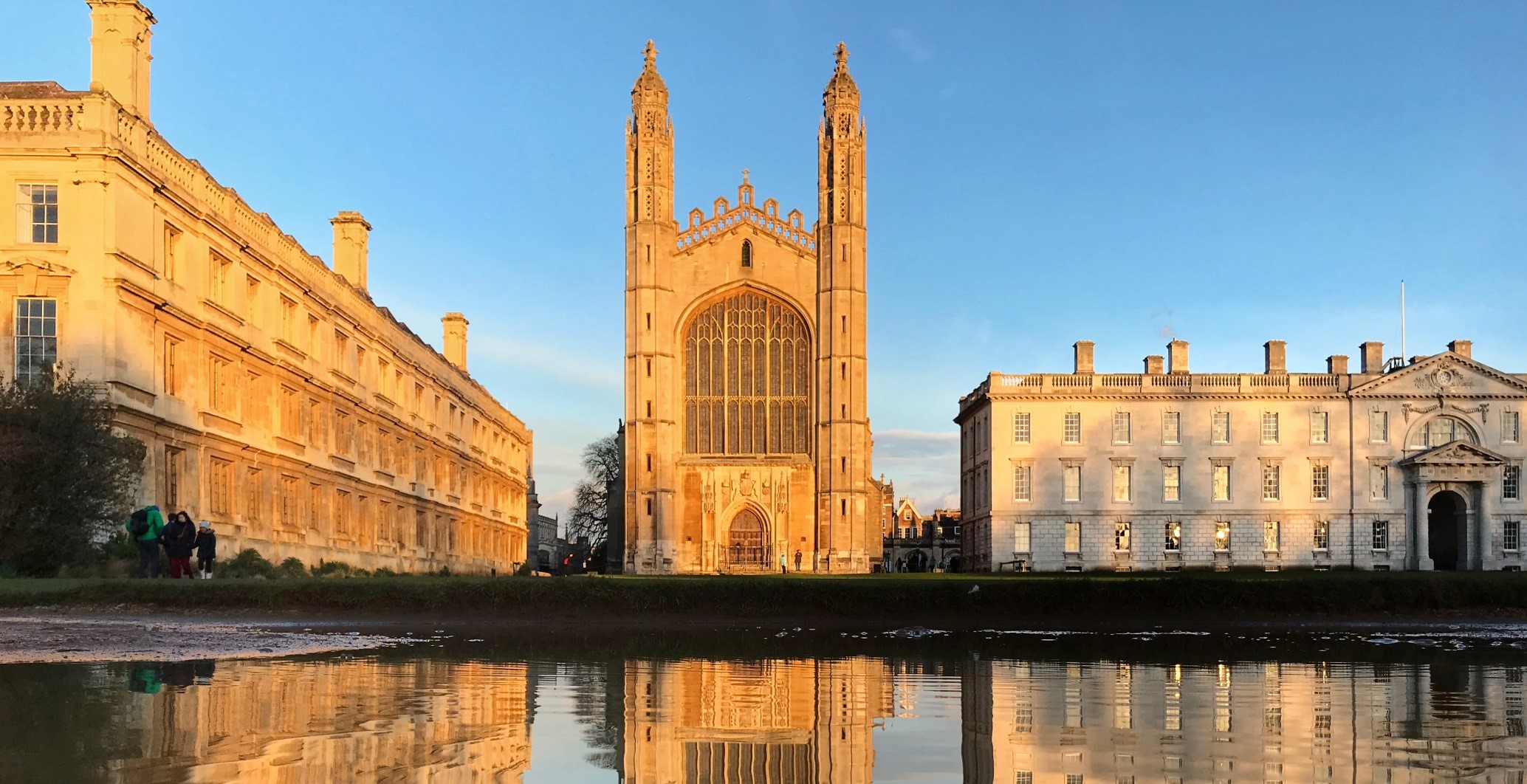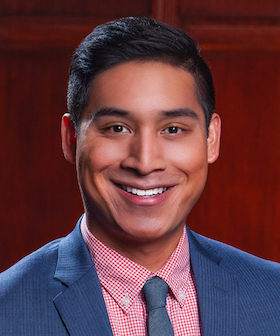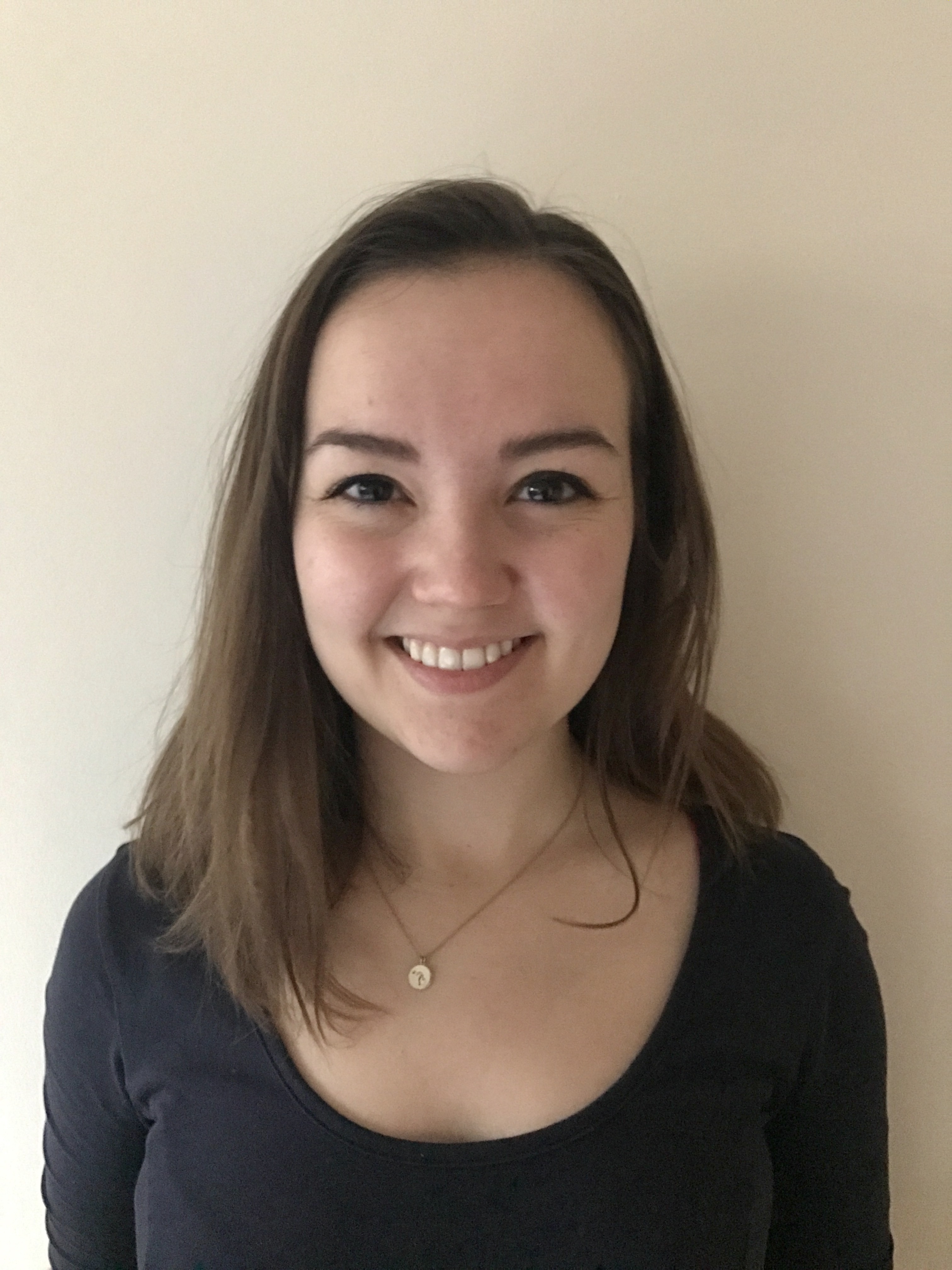
Gates Cambridge announces US Scholars 2019
Thirty-four of the most academically outstanding and socially committed US citizens have been selected to be part of the 2019 class of Gates Cambridge Scholars at the University of Cambridge.
The US Scholars-elect, who will take up their awards this October, are from 37 universities including seven institutions that have for the first time produced a Gates Cambridge Scholar (Bob Jones University, SC; Hillsborough Community College, FL; Loyola Marymount University, CA; Medical University of South Carolina, SC; Northeast Normal University, China; Shalom Hartman Institute, Israel; The City College of New York, NY; and the University of Scranton, PA).
They include:
-
Gregory Serapio-Garcia, who will do a PhD in Psychology. Gregory, who did his undergraduate studies at the University of Notre Dame, will synthesise mobile-sensing and personality data to predict mental illness outcomes and subjective well-being. He hopes to help automate lengthy mental health assessments through computational analyses of social media big data. He says: “I hope to inform the next generation of the world’s best physicians, lawyers, philosophers and educators of both the promise of online social data in transforming mental healthcare and the moral imperative to combat the exploitative use of big data in this proliferating field.”
-
Anna Forringer-Beal who will do a PhD in Gender Studies. She completed her master’s at Cambridge where she explored how stereotypes about immigrants and sex workers impact data gathering, victim assistance and have limited the scope of the UK Modern Slavery Act of 2015. For her PhD she will construct a genealogy of anti-trafficking law stretching back to the White Slave Panics of the late 1800s with the aim of showing how xenophobic thinking constrains their effectiveness. She states: “It is my hope that this work will refocus anti-trafficking policy to human rights and survivor support as the most effective tools in combating trafficking.”
-
Dhruv Nandamudi who will do a PhD in Biological Science. Dhruv did his undergraduate studies at Yale where he was director of the Yale Wellness Project and helped design and conduct a large-scale study aimed at better understanding the role of stress in student life and lessening its negative impact. Through a combination of neuroimaging and molecular paradigms, his PhD will focus on exploring the neuroscientific relationship between stress and memory control or ‘motivated forgetting’ where people forget unwanted memories, either consciously or unconsciously. He says: “My goal is to better understand the mechanisms guiding the interaction between stress and motivated forgetting in an effort to inform potential treatment methodologies for psychological disorders by enhancing cognitive emotion regulation.”
The US Scholars-elect will study and research subjects ranging from cybersecurity and choral music to technology biases and skeletal stem cells.
The prestigious postgraduate scholarship programme – which fully funds postgraduate study and research in any subject at the University of Cambridge – was established through a US$210 million donation to the University of Cambridge from the Bill and Melinda Gates Foundation in 2000; this remains the largest single donation to a UK university. Since the first class in 2001 there have been more than 1,600 Gates Cambridge Scholars from over 100 countries who represent more than 600 universities globally (more than 200 in the USA) and more than 80 academic departments and all 31 Colleges at Cambridge.
In addition to outstanding academic achievement the programme places emphasis on social leadership in its selection process as its mission is to create a global network of future leaders committed to improving the lives of others.
The US Scholars-elect will join about 60 Scholars from other parts of the world, who will be announced in early April after interviews in late March, so completing the class of 2019. The class of 2019 will join current Gates Cambridge Scholars in October to form a community of approximately 220 Scholars in residence at the world-leading University of Cambridge.
Professor Barry Everitt FRS, Provost of the Gates Cambridge Trust, said: “The Trust is delighted to have awarded Gates Cambridge Scholarships to outstanding students from the USA in the first of its two selection rounds for entry in 2019. The US Scholars-elect have been selected to reflect the mission of the Bill and Melinda Gates Foundation’s generous and historic gift to the University of Cambridge. Like their predecessors, they are an extraordinarily impressive and diverse group who have already achieved much in terms of their academic studies and leadership abilities and have already shown their commitment to improving the lives of others in a multitude of ways. We are particularly delighted that we were able to offer awards to a large number of PhD scholars. We are sure that the entire class of 2019 will flourish in the vibrant, international community at Cambridge as Gates Cambridge Scholars and that they will make a substantial impact in their fields and to the wider global community.”
Full bios and photos of the Scholars-elect can be found at www.gatescambridge.org/our-scholars/new-scholars.
For enquiries about this press release please contact mandy.garner@admin.cam.ac.uk. For questions about the programme please contact info@gatescambridge.org.
Image SirCam: https://www.flickr.com/photos/camdiary/

Gregory Serapio-García
- Scholar
- United States
- 2019 PhD Psychology
- St John's College
A San Francisco Bay Area native, I grew up immersed in and fascinated by technology. Carrying this fascination with me to study Psychology and Computing and Digital Technologies at the University of Notre Dame, I used my first research grants to conduct a crowdsourced Internet study of personality and subjective well-being in 105 nations and nine languages. At Notre Dame’s Center for Advanced Measurement of Personality and Psychopathology, I developed an interest in the overlap of clinical disorders with everyday personality traits. In 2017, I was selected for a National Science Foundation (NSF) Computational Social Science REU at Notre Dame’s Center for Research Computing where I used machine learning to predict mental health dimensions from social media big data. By pursuing a PhD in Psychology at Cambridge under the mentorship of Dr Jason Rentfrow, I will synthesize mobile-sensing and personality data to predict mental health outcomes and subjective well-being. I hope to help automate lengthy clinical assessments through computational analyses of social media big data with Dr David Stillwell and colleagues at The Psychometrics Centre. As a Gates Cambridge Scholar and social data scientist, I hope to inform the next generation of the world’s best physicians, lawyers, philosophers, and educators of both the promise of online social data in transforming mental healthcare and the moral imperative to combat the exploitative use of big data in this proliferating field.
Previous Education
University of Notre Dame Bachelor of Arts in Psychology 2019

Anna Forringer-Beal
- Alumni
- United States
- 2017 MPhil Multi-Disciplinary Gender Studies
2019 PhD Multi-disciplinary Gender Studies - Darwin College
After seeing firsthand how the law impacted the daily lives of women through the Undocumented Migration Project or on the National Human Trafficking Hotline, I felt compelled to study the construction of laws and the cultural attitudes which influence them. Through an MPhil in Gender Studies at Cambridge, I was able to explore how stereotypes about immigrants and sex workers impacted data gathering, victim assistance, and ultimately limited the scope of the UK Modern Slavery Act of 2015. I am humbled to be returning to the Gates Scholar’s Community to expand this project through a PhD in Gender Studies. By constructing a genealogy of anti-trafficking law stretching back to the White Slave Panics of the late 1800’s, I aim to show that anti-trafficking laws are currently constrained by xenophobic thought. It is my hope that this work will refocus anti-trafficking policy to human rights and survivor support as the most effective tools in combating trafficking. When not writing about human trafficking, I can be found baking, boxing, or fastidiously reorganizing my to-do lists.
Previous Education
University of Cambridge MPhil Gender Studies 2018
University of Michigan Bachelor of Arts Anthropology 2016












